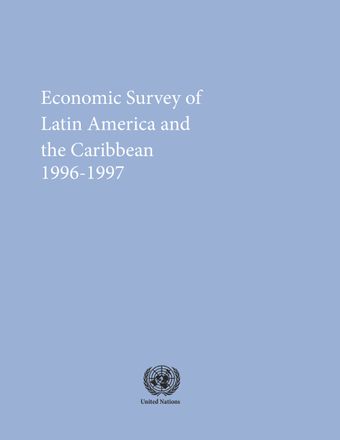Macroeconomic policy

- Author: Economic Commission for Latin America and the Caribbean
- Main Title: Economic Survey of Latin America and the Caribbean 1996-1997 , pp 27-46
- Publication Date: December 1997
- DOI: https://doi.org/10.18356/a89daf91-en
- Language: English
Progress in domestic stabilization has been the highest priority of macro-economic policy in most of the Latin American and Caribbean countries. The general trend was towards greater stability in a climate of openness and abundant foreign capital, which helped finance the external deficit. In spite of the exchange rate instability experienced towards the end of 1994, a large number of countries continued to base their anti-inflation policies on a nominal anchor for the exchange rate, whether fixed or with a controlled crawl based on preset goals for inflation reduction. In this context, exchange rates appreciated in real terms. Achievements in fiscal adjustment and the implementation of prudent monetary policies also helped re-establish macroeconomic equilibria.
-
From This Site
/content/books/9789210582988s002-c002dcterms_title,dcterms_subject,pub_keyword-contentType:Journal -contentType:Contributor -contentType:Concept -contentType:Institution105



